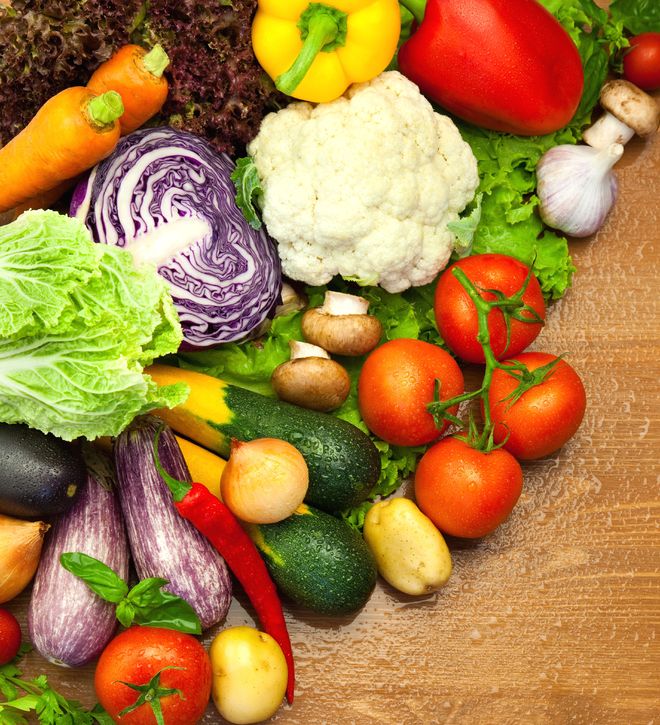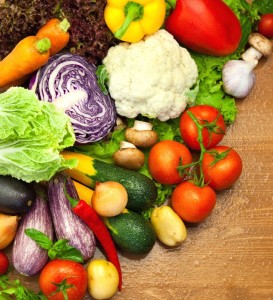
Benefits of a Plant-Based Diet
 What does “plant-based” mean to me?
What does “plant-based” mean to me?
I love the term plant-based because it seems a lot more inclusive. Plant-based can run the gamut from vegan to vegetarian to pescatarian to flexitarian to someone who eats animal products occasionally. The focus is on an eating plan based on eating mostly plants. I know many people who are very committed to their vegetarian or vegan eating plans and that works great for them. I also know other people who eat a mostly vegetarian diet but may occasionally eat some animal meat. Are they vegetarian? No, technically not. Are they plant-based? I would say so. Plant-based also implies a diet of mostly whole foods that come from plants like vegetables, fruits, whole grains, legumes, nuts and seeds. Lastly, plant-based acknowledges the nutritional and health benefits of eating mostly plants. Michael Pollan’s suggestion comes to mind here: “Eat food. Mostly plants. Not too much.”
What are some of the benefits of a plant-based diet?
A well-planned, nourishing plant-based diet can have many benefits, including:
1. Less impact on the planet. When we eat mostly plants, especially organic, locally grown, seasonal ones, we are making a powerful positive impact on our planet.
2. Fiber! Eating a healthy plant-based diet often means getting much more fiber in your diet which is better for your overall colon health. Not only does fiber help with regularity, but beneficial bacteria in our digestive system need the fiber as well, so a healthy gut comes from getting at least 30 grams of fiber a day. I actually like it if people can get even more.
3. A plant-based diet has been linked to many health benefits, including decreased risk of heart disease, diabetes and certain kinds of cancer.
4. Let’s talk about dairy. Many people are either lactose intolerant or have a dairy sensitivity to the proteins found in cow’s milk. For many people, dairy can be very inflammatory or can cause digestive upset like gas, bloating, diarrhea or constipation. Going off dairy can be a great step towards relieving a lot of these problems for many people.
5. More vegetables! If a person is eating a whole foods diet full of vegetables, then they are going to get all the wonderful benefits including increased fiber, phytonutrients, antioxidants, vitamins and minerals. I suggest people make at least half their plate vegetables, no matter if they are vegan, paleo, or anything else!
I will say that eating plant-based requires careful thought and planning. Someone could be vegan and eat all junk food, so it is important to look at what you eating. My suggestions include eating mostly whole foods–foods found in the natural state. In particular, I also suggest avoiding eating processed soy, especially soy protein isolate, which also can be very inflammatory. Instead, if you body is okay on soy, stick to mostly fermented soy products like tempeh and miso. Lastly, since we all have individual needs, it is important to see what works best for your body. For example, someone may have difficulty digesting certain carbohydrates or may require more protein. The key is adjusting your eating plan to your current dietary needs. (Having trouble figuring out what that is? Schedule a session with me and we can figure that out together!)
Lastly, want to incorporate a few more plant-based recipes into your week? Check out a few of my favorite plant-based websites!
http://www.vegkitchen.com/kid-friendly-recipes/
http://www.nomeatathlete.com/vegetarian-protein/
http://happyherbivore.com/recipes/
http://www.pcrm.org/health/diets/pplate/power-plate
http://well.blogs.nytimes.com/2013/01/14/how-to-go-vegan/
http://oaklandveg.com/resources/recipes/
http://www.dentalcarealliance.net/easy-and-healthy-vegan-recipes/
